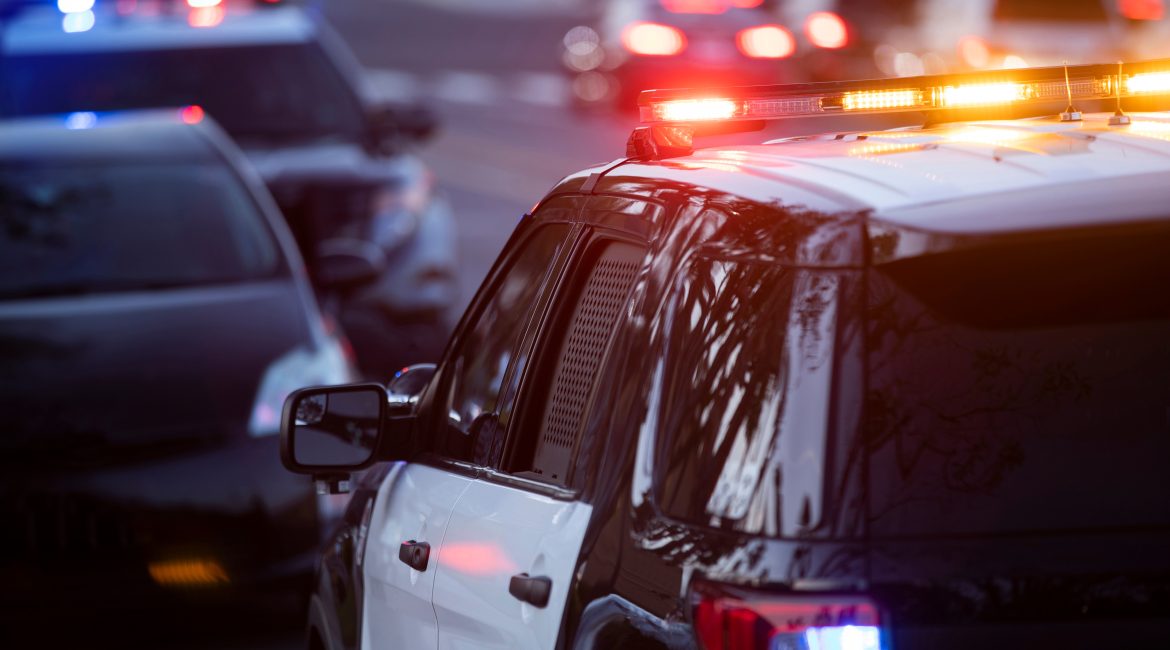The festive season is around the corner, and as we all gear up for the holidays you can also expect to be involved in a number of roadblocks on major routes. Which is why it’s important that you know your roadblock rights and how you should respond when pulled over.
Whether you are halfway to your holiday destination or on your way home after a dinner with your friends, getting pulled over often brings about feelings of anxiety.
Your palms might sweat, you start to wonder if you have done anything wrong and when the last time you updated your license disc was and your heart starts to race! A classic case of the roadblock jitters!
Discover: 4 Festive Season Road Safety Tips (with Statistics)
Of course, not everyone panics. Some drivers remain calm and collected. But no matter what end of the reaction spectrum you find yourself on, it helps to know your rights when it comes to roadblocks.
An article by Mnet dived into the types of roadblocks as well as what rights you have when pulled over.
Here’s what they had to say:
Knowing Your Roadblock Rights
There are 2 different kinds of roadblocks
Informal roadblocks
These are roadblocks that tend to randomly pop up on off-ramps and major roads. The primary goals of these roadblocks are to stop drunk drivers, find unroadworthy vehicles or drivers who are speeding. The officers at these roadblocks might also check for any outstanding fines.
K78 roadblocks
These are roadblocks that are approved by the National Police Commissioner. Here, the police officers are allowed to search your car and you without a warrant. These roadblocks are typically set up to try and find a vehicle and criminal driver on the police radar.
Before your person or vehicle is searched
If a police officer wants to search your person or your car, you can ask them to provide you with the Commissioner’s authorisation letter. If he or she is unable to provide you with this, then you have the right to deny them access to your vehicle or you.
Read this: 6 Game-Changing Parking Lot Safety Tips for Parents
What cops are allowed to do
Informal roadblocks
Legally, the officer is allowed to:
- Request to see your driver’s licence and ID
- Check if you have any outstanding fines
- Check your car’s licence disc
- Ensure your car is roadworthy
If the officer wants to search your car, he or she needs a warrant to state the reason for the search
Keep in mind that if the officer does not have a warrant but has reasonable grounds to perform the search, then he or she can prove this in court at a later stage. An officer may perform a search if he or she believes that delaying the search will hamper a potential criminal investigation.
If the officer thinks you are driving under the influence, then or she may take the following steps:
- Ask you to exit the vehicle
- Perform a breathalyser test – if you refuse, then the officer can legally detain you and have blood tests done at the nearest police station.
K78 roadblocks
Legally, the officer is allowed to:
- Search any person or vehicle without a warrant
- Seize any items from you and your car (items that are either illegal or linked to a crime)
- Keep in mind only an officer of the same gender as you can perform a body search.
In the case of outstanding fines
The officer is not legally allowed to ask for the payment of outstanding fines on the spot. The only time you are legally obliged to pay fines is when the officer is able to provide you with a copy of the official warrant or summons.
In the case of arrests
When stopped at a roadblock, police officers are legally allowed to arrest you with or without a warrant in the below situations:
- You are driving under the influence
- You are driving dangerously, recklessly or carelessly
- You are purposely obstructing the road
- Your licence has been cancelled or disqualified
- The police suspect you have committed or are about to commit a crime
- You physically or verbally abuse one of the officers. This includes crude gestures, racial slurs and threats.
What to do when you don’t feel safe
When pulled over late at night or if you for some reason feel wary about the roadblock (even during the day), then there are some steps you can follow:
- Remain calm and rational
- Call 10111 and inform them that you feel unsafe at a roadblock or are being followed by a car with blue flashing lights
- If you cannot get through to this call centre, then slow down, put on your hazards and open your window to indicate to the officers that you would like them to follow you to the nearest police station, ensure you do not exceed 40km/h
- If you have already stopped at the roadblock and feel that your safety is at risk, then you have the right to ask the officer for his badge number
- Calmy inform the officer that you’ll call 10111 to confirm their badge number. If the officer gets annoyed, then remain calm and if need be, you can submit a formal complaint soon after
Read next: What remote jamming is & 3 ways to avoid becoming a victim
Am I allowed to film the police?
Legally you are allowed to photograph or film the police at a roadblock. It is also illegal for them to confiscate or damage your camera or force you to delete the footage.
Stay safe out there!
Your Insurance Family,
Oneplan




